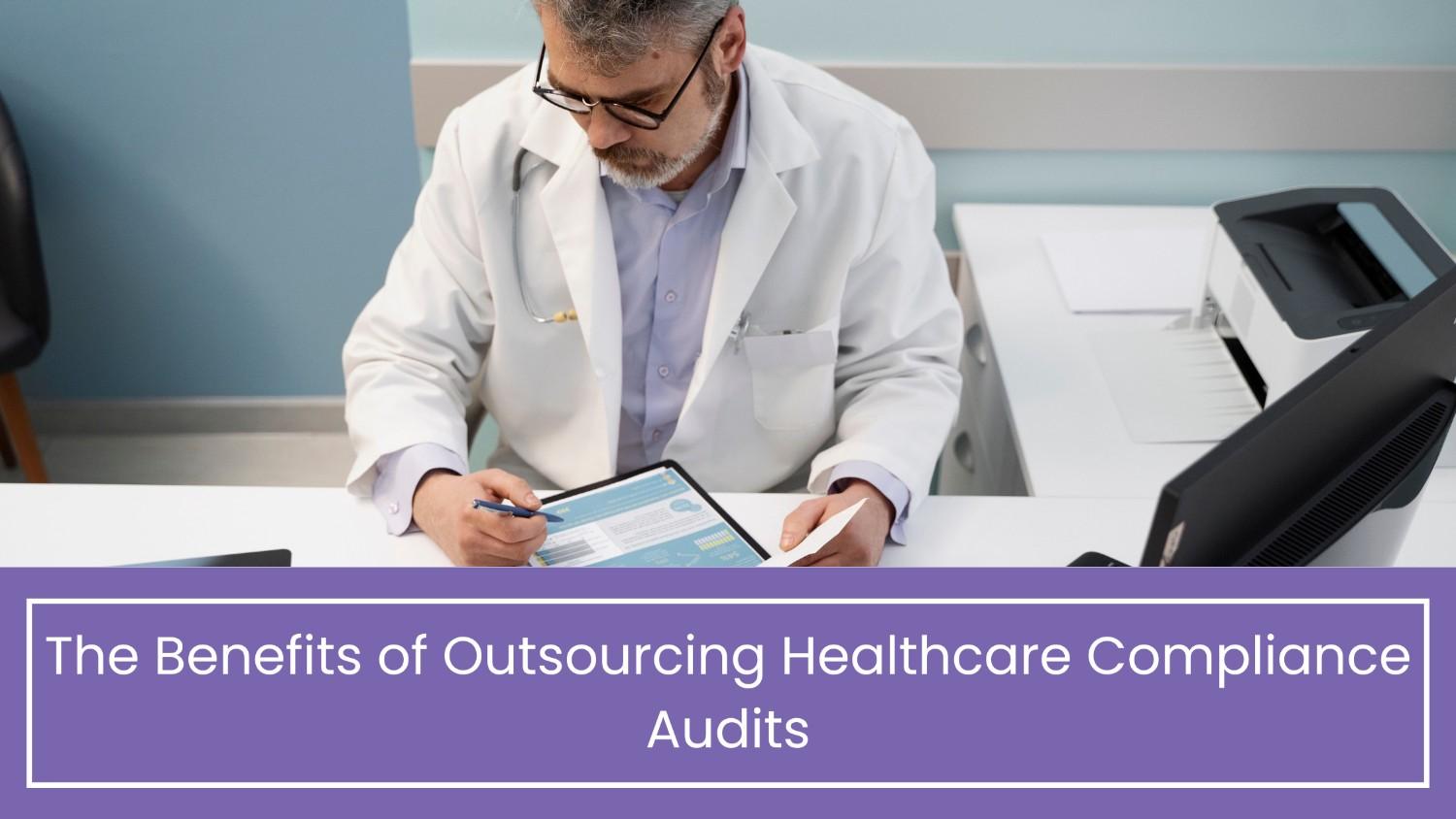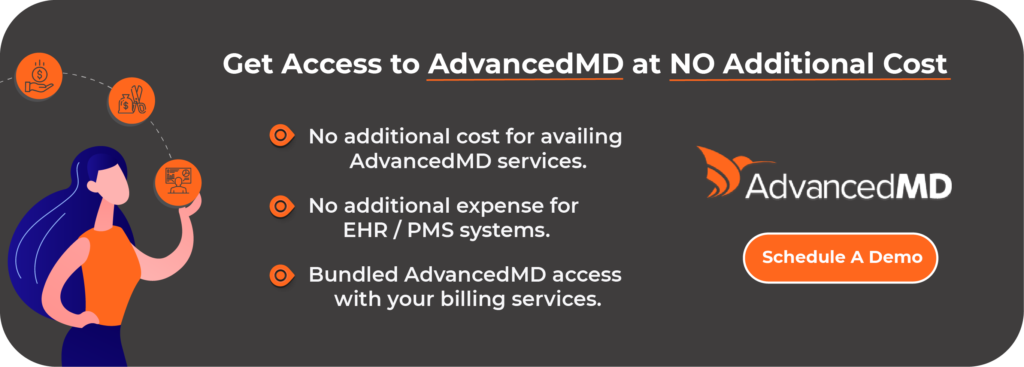Strategic Wisdom: The Benefits of Outsourcing Healthcare Compliance Audits
Amid the ever-changing realm of healthcare regulations and compliance, healthcare providers grapple with growing challenges in upholding standards of patient care. Within this context, the practice of outsourcing compliance audits has emerged as a strategic and efficient solution. This article presents insights from experts, shedding light on the rationale behind this increasingly popular trend.
The outsourcing of compliance audits equips healthcare organizations with specialized expertise and experience, delivering a comprehensive evaluation of their compliance processes. By delegating this vital responsibility to external professionals, providers can streamline their internal operations, optimize resource allocation, and concentrate on their core competencies, ultimately resulting in improved patient care.
This informative piece explores the advantages of outsourcing healthcare compliance audits, encompassing cost savings, diminished compliance risks, and heightened operational efficiency. By illuminating this astute approach, healthcare professionals can make well-informed decisions, fortifying their foundation of regulatory compliance and, most importantly, enhancing patient outcomes.
Table of Contents
Understanding Healthcare Compliance Audits and Its Importance
Healthcare compliance audits represent critical processes within the medical field, designed to ensure healthcare providers’ compliance with legal regulations, industry norms, and ethical principles. These audits play an indispensable role in safeguarding the quality of patient care, preserving data security, and upholding the integrity of healthcare institutions.
The primary objectives of compliance audits are as follows:
- Ensuring Regulatory Compliance:
Compliance audits are conducted to assess the adherence of healthcare facilities and professionals to a wide array of regulatory standards established by governmental bodies, including the HIPAA, ACA, and CMS guidelines. Through a thorough examination of records, policies, and practices, these audits pinpoint areas where compliance may be deficient and suggest corrective measures to avert potential legal and financial consequences.
- Protecting Patient Safety and Care Quality:
Patient safety and well-being are paramount concerns within any healthcare system. Compliance audits play a pivotal role in identifying aspects that could affect patient safety, ranging from medication administration protocols to infection control measures. Regular audits enable healthcare providers to proactively address issues, reduce medical errors, and enhance the overall quality of patient care.
- Safeguarding Data Security and Privacy:
In the era of advancing healthcare technology and the increasing digitalization of medical records, the safeguarding of data security and patient privacy has become a crucial and top-priority issue. Compliance audits evaluate the effectiveness of an organization’s data security protocols, ensuring the confidentiality and protection of patient information against unauthorized access or breaches. By adhering to audit recommendations, healthcare providers can lower the risk of data breaches and maintain the trust of their patients.
- Mitigating Financial Risks:
Compliance audits not only focus on patient care but also on billing and coding practices to verify their accuracy and adherence to regulations. By identifying potential billing errors or improper coding, audits help prevent financial losses and billing discrepancies. Implementing audit findings can lead to optimized revenue cycles and reduced chances of facing costly legal actions due to fraudulent billing practices.
- Promoting Ethical Behavior:
Upholding ethical standards is fundamental to the credibility of any healthcare institution. Compliance audits assess a healthcare organization’s adherence to ethical guidelines, such as managing conflicts of interest and handling vendor relationships. By fostering ethical behavior, healthcare providers can build a positive reputation within their communities and instill trust in patients and stakeholders.
Types of Healthcare Compliance Audits
- Internal Compliance Audits: Ensuring Adherence to Internal Policies
Within the risk management strategy of any healthcare organization, internal compliance audits play a foundational role. These audits concentrate on evaluating the organization’s internal policies, procedures, and processes to ensure they align with legal requirements and industry best practices. Through internal compliance audits, healthcare entities can identify potential compliance gaps, mitigate risks, and strengthen the overall efficiency of their operations.
- External Compliance Audits: A Thorough Examination by Third-Party Entities
External compliance audits encompass a comprehensive evaluation of a healthcare organization’s practices by external auditors or regulatory agencies. These audits are typically conducted periodically to verify compliance with specific regulations and standards established by government bodies or accrediting organizations. The outcomes of external compliance audits hold significant importance, as they can influence an organization’s reputation, funding, and its ability to provide certain services.
- HIPAA Compliance Audits: Safeguarding Patient Data Privacy
Health Insurance Portability and Accountability Act (HIPAA) compliance audits are exclusively focused on preserving patient data privacy and security. In an era marked by prevalent electronic health records, healthcare organizations bear the crucial responsibility of safeguarding patient information from unauthorized access and breaches. Conducting HIPAA compliance audits is a pivotal step in confirming their adherence to the necessary measures in place for protecting patient data and ensuring data security. These audits play a vital role in ensuring that healthcare entities meet the essential requirements of HIPAA, thereby maintaining patient privacy and confidentiality to foster trust and confidence in their services.
- Billing and Coding Compliance Audits: Accuracy and Transparency in Financial Operations
Billing and coding compliance audits assess the accuracy of healthcare providers’ billing practices and medical coding. Ensuring compliance in this area is indispensable for maintaining transparency in financial operations, preventing fraud, and averting issues related to overbilling or underbilling. These audits contribute to fair and equitable reimbursement for healthcare services while adhering to regulatory guidelines.
- Quality of Care Audits: Enhancing Patient Safety and Outcomes
Quality of care audits center on the clinical aspects of healthcare delivery. These audits evaluate the standard of care provided to patients, encompassing diagnostic accuracy, treatment effectiveness, and patient outcomes. By identifying areas for improvement, healthcare organizations can enhance patient safety, optimize treatment protocols, and elevate overall patient satisfaction.
- Medicare and Medicaid Audits: Navigating Government Program Compliance
Healthcare organizations participating in Medicare and Medicaid programs are subject to audits by the Centers for Medicare & Medicaid Services (CMS). These audits aim to confirm that services billed to these government programs comply with their specific regulations. Adhering to Medicare and Medicaid requirements ensures continued access to these essential programs and mitigates potential penalties or exclusions.
Enhancing Patient Care: The Benefits of Outsourcing Compliance Audits
To uphold the highest standards of care delivery, healthcare providers must meticulously adhere to compliance and regulatory guidelines. However, navigating these complex requirements can prove daunting, diverting valuable time and resources from patient-centered activities.
This is where outsourcing compliance audits emerges as a game-changer for healthcare organizations looking to optimize patient care. Entrusting compliance auditing to specialized third-party providers offers several benefits that directly enhance patient care:
- Expertise and Specialization: Outsourcing compliance audits grants healthcare organizations access to the expertise and specialization of professional audit firms. These firms possess auditors with profound knowledge of healthcare regulations and industry best practices. Leveraging their proficiency instills confidence in healthcare organizations, enabling them to achieve a higher level of compliance and stay updated on evolving regulatory changes.
- Focused Resources and Reduced Burden: In-house compliance audits can be resource-intensive, diverting time and effort from patient care. Outsourcing this vital function allows healthcare organizations to reallocate their resources to core patient-centered activities. By relieving the internal audit burden, healthcare providers can allocate more attention to delivering exceptional healthcare services, ultimately benefiting patient care.
- Enhanced Accuracy and Objectivity: Outsourced compliance audit firms bring an impartial perspective to the evaluation process. Their objective approach ensures a comprehensive and unbiased assessment of an organization’s compliance with regulations and standards. Thorough auditing and reporting provide valuable insights into areas for improvement, enabling healthcare organizations to enhance patient care protocols and practices.
- Cost-Effectiveness: In-house compliance audits can incur substantial costs, including hiring and training specialized staff, investing in audit technology, and dedicating significant time to the process. Outsourcing compliance audits offer a cost-effective alternative, as healthcare organizations pay for the services provided, avoiding the ongoing financial commitments of maintaining an internal audit team. These cost savings can be redirected towards patient care initiatives and investments in advanced medical technologies.
- Continuous Monitoring and Risk Mitigation: Compliance is an ongoing endeavor, requiring continuous monitoring and vigilance. Outsourced compliance audit firms provide healthcare organizations with regular assessments, enabling them to proactively identify potential risks and compliance gaps. Addressing issues promptly allows organizations to mitigate risks before they escalate, ensuring a safer environment for patients and strengthening overall patient care.
- Scalability and Flexibility: Healthcare organizations experience varying compliance audit demands, influenced by changing regulations and business expansion. Outsourcing offers the flexibility to scale audit services according to the organization’s specific needs. Whether it’s a comprehensive organization-wide audit or targeted assessments of specific departments, outsourcing enables healthcare providers to adapt their compliance efforts to align with evolving requirements.
In summary, outsourcing healthcare compliance audits is a wise and strategic choice for healthcare organizations. It provides numerous advantages, including specialized expertise, cost-effectiveness, and improved accuracy. Delegating compliance audits to external experts ensures impartial assessments and compliance with industry regulations. By adopting this intelligent approach, healthcare providers can streamline their operations, mitigate risks, and concentrate on their core mission of delivering outstanding patient care. Embrace outsourcing to elevate your compliance efforts to the highest level of success.
Practolytics, your trusted compliance partner, specializes in tailored healthcare compliance solutions. With a dedicated team of experts, we offer comprehensive outsourcing services, enabling you to focus on patient care while ensuring adherence to regulations.
Join us and elevate your compliance efforts for a safer, patient-centric healthcare environment!
ALSO READ – Decoding CPT: Your Guide to Codes and Regulations 2024
Talk to Medical Billing Expert Today — Get a Free Demo Now!






